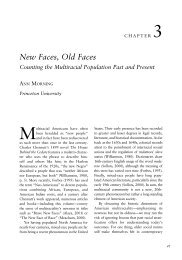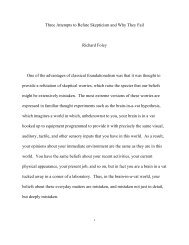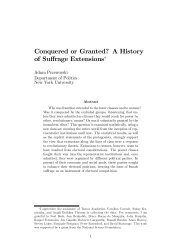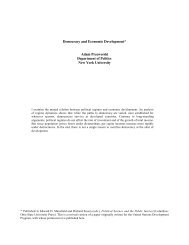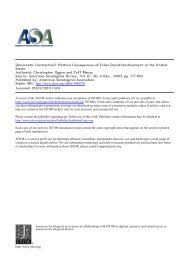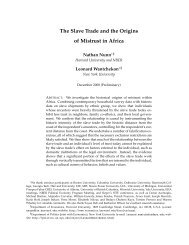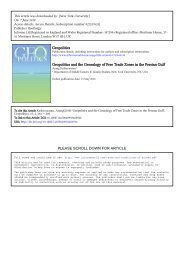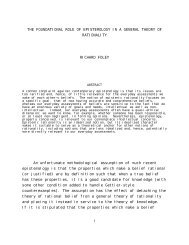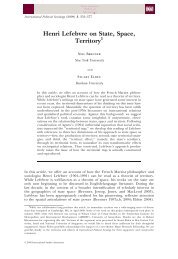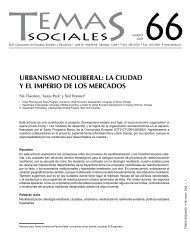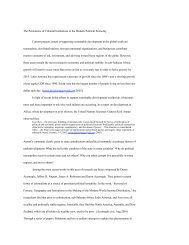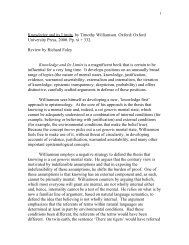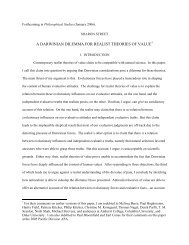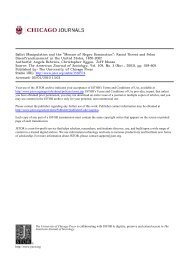Saving & Uniting Lives - Bioethics - New York University
Saving & Uniting Lives - Bioethics - New York University
Saving & Uniting Lives - Bioethics - New York University
Create successful ePaper yourself
Turn your PDF publications into a flip-book with our unique Google optimized e-Paper software.
<strong>Saving</strong> &<br />
<strong>Uniting</strong> <strong>Lives</strong><br />
A Conference in Honor of<br />
William Ruddick<br />
Professor of Philosophy<br />
Arthur Zitrin Professor of <strong>Bioethics</strong><br />
Founding Director, NYU Center for <strong>Bioethics</strong><br />
Hosted by <strong>New</strong> <strong>York</strong> <strong>University</strong>’s<br />
Department of Philosophy<br />
& Center for <strong>Bioethics</strong><br />
Friday, April 12, 2013<br />
9:00am – 7:00pm<br />
D’Agostino Hall, 110 West 3 rd Street,<br />
Lipton Hall & Faculty Club<br />
Speakers<br />
Daniel Wikler<br />
Mary B. Saltonstall Professor of Population Ethics<br />
Professor of Ethics and Population Health,<br />
Harvard <strong>University</strong><br />
Amelie Rorty<br />
Lecturer on Global Health & Social Medicine,<br />
Harvard <strong>University</strong><br />
Frances Kamm<br />
Littauer Professor of Philosophy & Public Policy;<br />
Professor of Philosophy, Harvard <strong>University</strong><br />
Jonathan Glover<br />
Professor of Medical Law & Ethics, King’s College<br />
Distinguished Research Fellow,<br />
Oxford Uehiro Centre for Practical Ethics
Schedule of Sessions<br />
FRIDAY, APRIL 12, 2013<br />
9:00-9:30AM BREAKFAST<br />
Location D'Agostino Hall, 110 West Third Street, Faculty Club<br />
9:30-9:45AM OPENING REMARKS<br />
Don Garrett, Chair, Department of Philosophy; Professor of Philosophy, <strong>New</strong> <strong>York</strong> <strong>University</strong><br />
Dale Jamieson, Director of the Center for <strong>Bioethics</strong>, the Environmental Studies Program<br />
and the Animal Studies Initiative; Professor of Environmental Studies and Philosophy, <strong>New</strong><br />
<strong>York</strong> <strong>University</strong><br />
9:45-11:15AM SESSION I: WRONG TURN AFTER NUREMBERG: QUESTIONING THE POST-WAR CONSENSUS IN<br />
RESEARCH ETHICS<br />
Speaker: Daniel Wikler, Mary B. Saltonstall Professor of Population Ethics; Professor of<br />
Ethics and Population Health, Harvard <strong>University</strong><br />
Session Chair: Matthew Liao, Director of Graduate Studies, Center for <strong>Bioethics</strong>; Clinical<br />
Associate Professor of <strong>Bioethics</strong>, <strong>New</strong> <strong>York</strong> <strong>University</strong>.<br />
11:15-11:30AM COFFEE BREAK<br />
Location D'Agostino Hall, 110 West Third Street, Faculty Club<br />
11:30-1:00PM SESSION II: ON THE OTHER HAND: THE ETHICS OF AMBIVALENCE<br />
Speaker: Amelie Rorty, Lecturer on Global Health and Social Medicine, Harvard Medical<br />
School, <strong>University</strong>; Visiting Professor of Philosophy, Boston <strong>University</strong><br />
Session Chair: Collin O’Neil, Assistant Professor/Faculty Fellow of <strong>Bioethics</strong>, <strong>New</strong> <strong>York</strong><br />
<strong>University</strong>.<br />
1:00-2:30PM LUNCH<br />
Please see the attached list of area restaurants for suggestions on where to have lunch<br />
2:30-4:00PM SESSION III: WHO TURNED THE TROLLEY?<br />
Speaker: Frances Kamm, Littauer Professor of Philosophy & Public Policy; Professor of<br />
Philosophy, Harvard <strong>University</strong><br />
Session Chair: Samuel Scheffler, <strong>University</strong> Professor; Professor of Philosophy & Law, <strong>New</strong><br />
<strong>York</strong> <strong>University</strong>.<br />
4:00-4:15PM COFFEE BREAK<br />
Location D'Agostino Hall, 110 West Third Street, Faculty Club<br />
4:15-5:45PM SESSION IV: EMOTIONS, MEMORY AND RECOGNITION<br />
Speaker: Jonathan Glover, Professor of Medical Law & Ethics, King’s College; Distinguished<br />
Research Fellow, Oxford Uehiro Centre for Practical Ethics<br />
Session Chair: Dale Jamieson, Director of the Center for <strong>Bioethics</strong>, the Environmental<br />
Studies Program and the Animal Studies Initiative; Professor of Environmental Studies and<br />
Philosophy, <strong>New</strong> <strong>York</strong> <strong>University</strong><br />
5:45-7:00PM RECEPTION<br />
Location: D'Agostino Hall, 110 West Third Street, Faculty Club<br />
1
Abstracts<br />
SESSION I<br />
“Wrong Turn After Nuremberg: Questioning the Post-War Consensus in Research Ethics”<br />
Daniel Wikler, Mary B. Saltonstall Professor of Population Ethics;<br />
Professor of Ethics and Population Health, Harvard <strong>University</strong><br />
Abstract: As almost all American academics know, the “IRB” (“Institutional Review Board”, aka the<br />
“Human Subjects Committee” “Ethical Review Committee”, etc.) is a formidable presence at<br />
research institutions. The IRB’s moral approval, which is not subject to appeal, is required before<br />
research involving human subjects can begin. A critical examination of the moral reasoning of IRBs<br />
is thus of practical as well as theoretical interest. I argue that the conventional wisdom in human<br />
subjects review can be traced back to a particular response to revelations about Nazi abuses of<br />
research subjects that misinterprets the moral nature of these abuses and that can be faulted for<br />
misdirecting the subsequent direction of human subjects review. I will sketch an alternative that, in<br />
my view, is preferable in both respects.<br />
SESSION II<br />
“On the Other Hand: The Ethics of Ambivalence”<br />
Amelie Rorty, Lecturer on Global Health and Social Medicine, Harvard Medical School, <strong>University</strong><br />
Visiting Professor of Philosophy, Boston <strong>University</strong><br />
Abstract: Ambivalence is sometimes appropriate, epistemically responsible and worth preserving.<br />
The imaginative skills that sustain warranted ambivalence are central to constructive practical<br />
reasoning. In pluralistic societies, the capacities of being justifiably of two minds enable empathic<br />
cooperation: they are among the civic virtues.<br />
SESSION III<br />
“Who Turned the Trolley?”<br />
Frances Kamm, Littauer Professor of Philosophy & Public Policy;<br />
Professor of Philosophy, Harvard <strong>University</strong><br />
Abstract: Recently there has been some debate about what the Trolley Problem is and whether it<br />
actually exists. To deal with this mystery, I will review some possible understandings of the Trolley<br />
Problem, its role in helping us decide when some may be harmed in order to save others, and<br />
examine the claim that only those who would otherwise kill rather than die may permissibly turn<br />
the trolley.<br />
2
SESSION IV<br />
“Emotions, Memory and Recognition”<br />
Jonathan Glover, Professor of Medical Law & Ethics, King’s College;<br />
Distinguished Research Fellow, Oxford Uehiro Centre for Practical Ethics<br />
Abstract: There is a debate in psychiatry over whether depression at being bereaved should be<br />
considered a disorder needing help, perhaps medication. The context and meaning for the person of<br />
memories and grief are crucial. Contrasts will be drawn with emotionally charged memories in<br />
other contexts: national memories of defeat and humiliation (that often contribute to a cycle of<br />
retaliatory violence) and the guilt-laden memories of some former combatants who have posttraumatic<br />
stress.<br />
3



